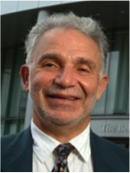Direction to Salk Pavilion is shown in campusmap0607 (UPITT campus) Salk Pavillion
Monday, August 8, 2016 – Morning Session
7:30 – 8:10 am Onsite Registration & Poster Set up (Salk Pavilion, Commons) (Light refreshments will be served.)
8:10 – 8:15 am Welcome by Dr. Xiang-Qun (Sean) Xie, CDAR Center Director
(Salk Room456) Opening Remarks by Dr. Arthur Levine, Senior Vice Chancellor for the Health Sciences, John and Gertrude Petersen Dean, School of Medicine
8:15 am – Noon Scientific Research Innovation (Invited Speakers) (Salk Room456)
8:15 – 8:55 am “Control the Deactivation of Cannabinergic Compounds “
 by Dr. Alexandros Makriyannis, Professor,
by Dr. Alexandros Makriyannis, Professor,
George D. Behrakis Endowed Chair,
Director of the Center for Drug Discovery,
Northeastern University (35 + 5 min Q/A)
8:55 – 9:35 am “Statistical Thinking and Bayesian Thinking in Neuroscience”
 by Dr. Robert E. Kass, Maurice Falk Professor of Statistics and Computational Neuroscience,
by Dr. Robert E. Kass, Maurice Falk Professor of Statistics and Computational Neuroscience,
Interim Co-Director, Center for the Neural Basis of Cognition,
Carnegie Mellon University
(35 + 5 min Q/A)
9:35 – 10:15 am “Quantitative Systems Pharmacology (QSP) for Knowledge Integration and Hypothesis Generation in Pharmaceutical R&D”
 by Dr. Tarek A. Leil, Group Director – Quantitative Clinical Pharmacology,
by Dr. Tarek A. Leil, Group Director – Quantitative Clinical Pharmacology,
Clinical Pharmacology & Pharmacometrics – Exploratory Clinical and Translational Research (ECTR),
Bristol-Meyers Squibb
(35 + 5 min Q/A)
10:15 – 10:30 am Break (15 min)
(Chairperson: Dr. Ivet Bahar)
10:30 – 11:10 am “Mining LINCS Big Data to Knowledge”
 by Dr. Avi Ma’ayan, Professor, Department of Pharmacology and Systems Therapeutics,
by Dr. Avi Ma’ayan, Professor, Department of Pharmacology and Systems Therapeutics,
Director of the Mount Sinai Center for Bioinformatics,
Icahn Medical Institute
(35 + 5 min Q/A)
11:10 – Noon Keynote Presentation – “Translational Data Science at Merck”
Executive Director of MRLIT Modeling Platforms and CORE at Merck
(45 + 5 min Q/A)
Noon – 1:00 pm Lunch & Poster Presentations (Salk Pavilion, Commons)
Monday, August 8, 2016 – Afternoon Session (Salk Room 456)
1:00 – 1:15 pm “UPMC’s Big Data Initiative”
 by Dr. Steven D. Shapiro, Executive Vice President,
by Dr. Steven D. Shapiro, Executive Vice President,
UPMC Chief Medical and Scientific Officer
President, Health Services Division (10 + 5 min Q/A)
1:15 – 1:45 pm Special Talk – “NIDA’s Basic Chemistry Research and Translational Areas of Interest”
by Dr. Rao Rapaka,
Branch Chief of NIH NIDA
(25 + 5 min Q/A)
1:45 – 3:30 pm CDAR Core Research Reports (Salk Room 456)
1:45 – 2:20 pm “Disease-Specific Chemogenomics Knowledgebases and TargetHunter© for Drug Abuse and Neurodisorder Research and System Pharmacology”
 by Dr. Xiang-Qun (Sean) Xie (Core A), Professor and Associate Dean,
by Dr. Xiang-Qun (Sean) Xie (Core A), Professor and Associate Dean,
Department of Pharmaceutical Sciences & Drug Discovery Institute,
Director of CDAR Center
(25 + 10 min Q/A)
2:20 – 2:55 pm “Insights into the Molecular Mechanisms of Function of Neurotransmitter Transporters and Ionotropic Glutamate Receptors”
 by Dr. Ivet Bahar (Core B), Distinguished Professor & JK Vries Chair
by Dr. Ivet Bahar (Core B), Distinguished Professor & JK Vries Chair
Department of Computational & Systems Biology,
Associate Director of University of Pittsburgh Drug Discovery Institute
(25 + 10 min Q/A)
2:55 – 3:30 pm “Toward Personalized Pan-Omic Association Analysis under Complex Structures”
 by Dr.Eric Xing (Core C), Professor,
by Dr.Eric Xing (Core C), Professor,
Machine Learning Department & Language Technology Institute & Computer Science department,
Director of Center for Machine Learning and Health, Carnegie Mellon University
(25 + 10 min Q/A)
3:30 – 4:00 pm Coffee break & Poster session, Group photo (Salk Pavilion, Commons)
Poster Evaluation
4:00 – 6:00 pm Funded Research Projects (FRP) & Pilot Project Reports (Salk Room 456)
4:00 – 4:20 pm “Targeting Cannabinoid Receptor-2 to Reduce Renal Fibrosis”, by Dr. Youhua Liu, Professor, Department of Pathology, University of Pittsburgh (15 + 5 min Q/A)
4:20 – 4:40 pm “b2-Adrenergic Receptor Responses and Asthma: Modulation through Protein-Lipid Interactions” by Dr. Sally E. Wenzel, Professor of Medicine & Director of University of Pittsburgh Asthma Institute @ UPMC/UPSOM (15 + 5 min Q/A)
4:40 – 5:00 pm “New strategies to manage opioid addiction and pain”, by Dr. Manojkumar Puthenveedu, Associate Professor, Biological Sciences and The Center for the Neural Basis of Cognition, Carnegie Mellon University (15 + 5 min Q/A)
5:00 – 5:10 pm “AB vs. ADB: One Methyl Makes a Large Difference”, by Joshua Yohannan, MS, Laboratory Manager of The Allegheny County Medical Examiner’s Office (8 + 2 min Q/A)
5:10 – 5:20 pm “Defining the Higher Order Structures of GPCR Signaling Complexes for Drug Discovery”, by Dr. Kevin Xiao, Associate Professor, Department of Pharmacology and Chemical Biology, University of Pittsburgh (8 + 2 min Q/A)
5:20 – 5:30 pm “Do the behavioral effects of dopamine transporter (DAT) inhibitors correlate with DAT conformation preference?” by Dr. Christopher K. Surratt, Professor of Pharmacology, Mylan School of Pharmacy, Duquesne University (8 + 2 min Q/A)
5:30 – 6:00 pm Training, Dissemination and Administration
****Graduate Student Poster Awards****
6:00 pm Meeting Adjourned until Tuesday
6:00 – 8:30 pm Dinner (External Advisory Board Members, CDAR Leaders, Pitt/CMU Admins)
(Salk Pavilion, CVS Conference Room)
Tuesday, August 9, 2016
7:30 – 8:00 am Breakfast & Poster
8:00 – 10:00 am Poster Session (Salk Pavilion, Commons)
9:00 – 12:00 noon Business Meetings (Salk Pavilion, CVS Conference Room)
9:00 – 10:00 am Meeting of EAB members only
10:00 – 11:00 am Meeting of EAB members with the CDAR Leadership
11:00 – Noon EAB members only, wrap up/write the summary report
12:00 – 1:30 pm Concluding Remarks & Boxed Lunch
Training Workshop for Registered Attendees (BST3, Room 3073**)
1:30 – 3:00 pm Core A Training (30 minute lecture and 1 hour demo & practice)
Training topics:
(1) Chemogenomics Database for Drug Abuse & Neuro-disorders: Genes, protein targets, pathways involved in a disease and small molecules that can directly interact with these key proteins with the potential to modulate the disease.
(2) TargetHunerMap: To predict the potential protein target(s) of a small molecule drug or a chemical compound through structure similarity or molecular docking.
(3) BBB prediction: To predict the blood-brain barrier (BBB) permeability of a small molecule based on its chemical features.
3:00 – 4:30 pm Core B Training (30 minute lecture and 1 hour demo & practice)
Training topics:
(1) ANM (Anisotropic network model): an elastic network based tool for analysis of dynamics of proteins and nucleic acids.
(2) ProDy: a free and open-source Python package for protein structural dynamics and sequence analysis.
(3)Druggability simulations: the use of DRUGUI, a VMD plugin, for performing MD simulations for druggability assessment, using probe molecules.
4:30 – 6:00 pm Core C Training (30 minute lecture and 1 hour demo & practice)
Training topic:
GenAMap: GenAMap software is a powerful platform for detection and easy visualization of structured association of genomic data and physical traits.
**Please note, BST3 is a high security building. We will need to go together as a group so that no one is inadvertently left out.





